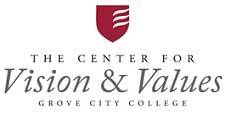by Dr. Gary Welton


Grove City, PA –-(Ammoland.com)- In “Pleading Guilty ( tiny.cc/8j306x ) ,” best-selling novelist Scott Turow wrote, “What kind of ethical social system takes as its fundamental precepts the words ‘I’ ‘me’ and ‘mine’? Our two-year-olds start like that and we spend the next twenty years trying to teach them there’s more than that to life.”
Fyodor Dostoyevsky, in his novel, “The Possessed, ( tiny.cc/6m306x ) ” built his entire tome around this idea, as he described humanity as we become possessed with self. His portrayal is so compelling that I personally consider this the greatest novel ever written.
It’s not that there is anything inherently wrong with meeting our personal needs, but we so easily allow reasonable personal concerns to become our primary focus in life.
Tim Keller suggests that radical individualism has become, for many, the North American idol. In his book, “Ministries of Mercy ( tiny.cc/hq306x ),” he wrote;
“The Left expects a citizen to be held legally accountable for the use of his wealth, but totally autonomous in other areas, such as sexual morality. The Right expects a citizen to be held legally accountable in areas of personal morality, but totally autonomous in the use of wealth. The North American ‘idol’—radical individualism—lies beneath both ideologies. A Christian sees either ‘solution’ as fundamentally humanistic and simplistic.”
It is interesting to compare the frequency of first-person singular pronouns (“I” “me” “my” and “mine”) and first person plural pronouns (“we” “us” “our” and “ours”). In Psalm 23, perhaps the best-known passage in Scripture, first-person singular pronouns occur 17 times. The Lord does care for his individual people. I as an individual have value in the eyes of the true and living God. Even though I am only one of some six billion people living on this earth at this point in time, I, as one living organism, have value to my God. I lack nothing. I am restored. I am guided. I need fear nothing. I am cared for. I am surrounded with love, for my Shepherd leads me, and goodness and mercy have my back. And this relationship will never end. I as an individual have value in the eyes of the true and living God. I am the apple of His eye. On the other hand, in the Lord’s Prayer, all of the first-person pronouns are plural. The prayer is a community prayer, not a private one. I pray for “us,” not just for “me.”
In their 2013 article, “Changes in Pronoun Use in American Books and the Rise of Individualism, 1960-2008,” Twenge, Campbell, and Gentile observe, based on an analysis of 766,513 American books in the Google books data base, that in the last 50 years, our textual use of first-person plural pronouns has decreased by 10 percent, while the use of first-person singular pronouns has increased by 42 percent.
According to englishwithexperts.com, American English uses the first-person singular pronouns more than twice as often as the first-person plural pronouns. It has also been observed that the English language is the only language that capitalizes the word “I.” Perhaps it is no accident that English speaking countries are the most individualistic countries in the world.
I quickly add that rugged American individualism has provided many positive benefits for our country.
Nevertheless, I come back to Keller’s claim that our radical individualism often becomes an idol. Christian teaching focuses on the love of our neighbors and the community of the saints. Individualism, without community, lacks the essence of the Christian message.
Turow was correct when he wrote, “We spend the next twenty years trying to teach them there’s more than that to life.” Unfortunately, for me, I still struggle with this lesson. I’m much older than twenty, but I am often characterized by the idol of self-possession.
Lord, teach me to better love my neighbor as myself. Teach me to be a significant and daily contributor to the communion of the saints. Teach me to be a “we” person and not just a “me” person.
—Dr. Gary L. Welton is assistant dean for institutional assessment, professor of psychology at Grove City College, and a contributor to The Center for Vision & Values. He is a recipient of a major research grant from the Templeton Foundation to investigate positive youth development.
